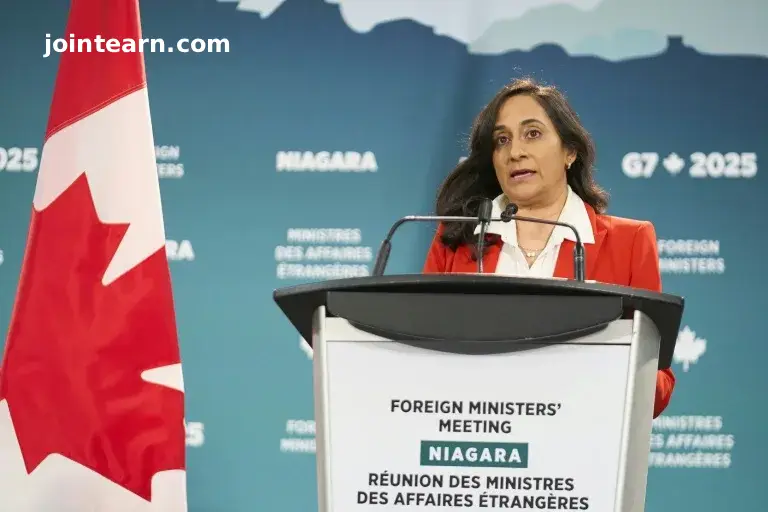
Niagara-on-the-Lake, Canada – November 12, 2025 – The Group of Seven (G7) foreign ministers convened this week in Canada to address multiple global security crises, including the ongoing war in Ukraine and the escalating conflict in Sudan. In a joint statement, top diplomats from Britain, Canada, France, Germany, Italy, Japan, and the United States emphasized the urgent need for an immediate ceasefire in Ukraine and called on all parties in Sudan to de-escalate hostilities to prevent further humanitarian catastrophe.
G7 Stands Firm on Ukraine’s Territorial Integrity
During the two-day summit near Niagara Falls, G7 leaders reaffirmed their “unwavering support” for Ukraine, stressing the need to maintain the country’s sovereignty and territorial integrity in the face of Russia’s ongoing invasion. The ministers called for urgent action to impose additional pressures on Russian President Vladimir Putin, while simultaneously increasing Ukraine’s capacity to defend itself.
“An immediate ceasefire is urgently needed,” the G7 statement read, highlighting the collective resolve of member nations to confront the humanitarian and security challenges caused by Russia’s aggression.
Ukraine’s Foreign Minister Andriy Sybiha, invited to the summit, warned that Putin continues to underestimate the cost of his war. He cited massive casualties and strategic failures, emphasizing that the G7 must make the continuation of the conflict politically and economically costly for Moscow.
New Sanctions Target Russia’s Cyber and Shadow Fleet Operations
Canadian Foreign Minister Anita Anand announced a series of new sanctions targeting entities involved in cyberattacks against Ukraine, marking the first time Canada has sanctioned components of Russia’s IT infrastructure used in hybrid warfare strategies.
Additionally, Canadian authorities targeted vessels linked to Russia’s shadow fleet, which is reportedly used to transport oil in defiance of international sanctions. The measures also extended to companies involved in Russia’s liquefied natural gas (LNG) industry, reinforcing the G7’s strategy to curb funding streams that support Russia’s war efforts.
The United Kingdom pledged £13 million ($17.1 million) to help rebuild Ukraine’s energy infrastructure, which has suffered repeated attacks from Russian forces in recent weeks. These efforts demonstrate the G7’s commitment to both strategic sanctions and humanitarian support for Ukraine.
Escalating Violence in Sudan Sparks International Alarm
The G7 ministers also turned their attention to Sudan, where the ongoing conflict between the national army and the Rapid Support Forces (RSF) has triggered what the statement called “the world’s largest humanitarian crisis.” Since April 2023, the war has killed tens of thousands and displaced nearly 12 million people, with recent RSF advances, including the capture of El-Fasher in Darfur, fueling further violence.
US Secretary of State Marco Rubio urged international action to cut off weapons and external support to the RSF, holding the paramilitary force responsible for widespread bloodshed. The G7 called on both sides to commit to an immediate and permanent ceasefire and ensure the unhindered passage of humanitarian aid.
Additional Global Concerns and Diplomatic Notes
The G7 summit also touched on geopolitical developments in Venezuela and the Caribbean, where France expressed concern over the US military buildup. US-Canada relations were highlighted as well, with discussions noting that trade disputes and tariffs fall under separate ministerial jurisdictions. Canadian Foreign Minister Anand defended her decision not to address the US trade tariffs directly, stating the issue was outside her mandate.
The summit demonstrated the G7’s focus on coordinated diplomatic pressure, sanctions enforcement, and humanitarian support, reinforcing its role in addressing both conventional conflicts like Ukraine and complex crises such as Sudan.


Leave a Reply